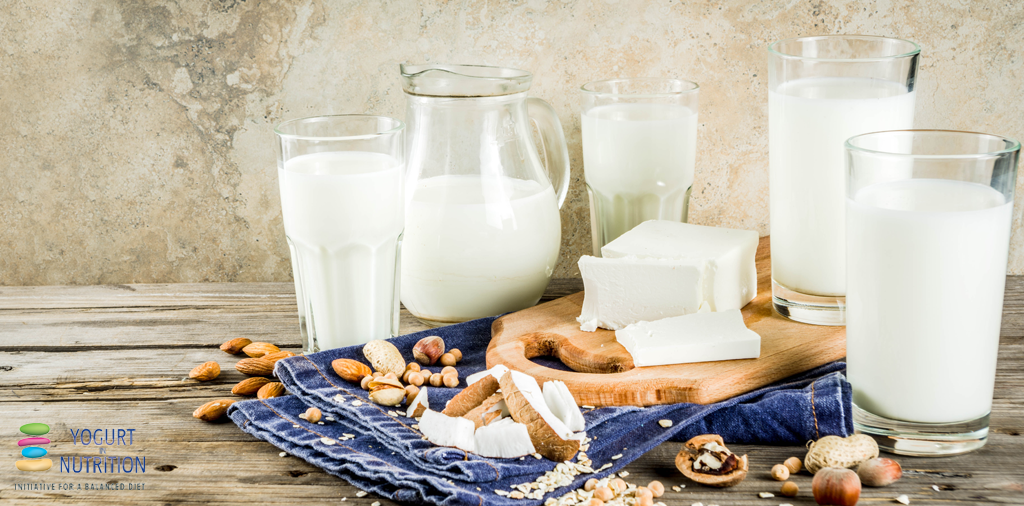If you find you’re developing a taste for plant-based food and drinks, you’re certainly not alone. Their popularity is on the up, with a wide choice – such as those made from soy or almonds – crowding our supermarket shelves.
In general, plant-based food and drinks have a different nutritional content to dairy products. Many plant-based products provide important nutrients and in some ways they may be a good option for the environment, according to the authors of this review article.
What are plant-based food and drinks?
As the name suggests, they’re manufactured from extracts from plants. Soya products, made from soy beans, have been the most widely available, but more recently products made from seeds (e.g. hemp), nuts (e.g. almonds) or grains (e.g. oats, rice) have made their way into our supermarkets.
Why do people buy plant-based products?
Dairy milk is a staple food rich in protein, carbohydrate, a range of minerals and vitamins, and a variable amount of fat depending on whether it’s full-fat or skimmed. In recent years, the surge in vegetarian and vegan diets, greater awareness of lactose intolerance and milk allergy, and concerns over sustainability and the environment have all prompted more people to eat a more plant-based diet.
Some evidence suggests that plant-based products are associated with lower greenhouse gas emissions than dairy milk and may help in the fight against climate change. However(See more at What would a more sustainable diet mean for you?)The debate about their overall effects on the environment continues. Without a doubt, plant-based products can be helpful in parts of the world where people don’t have ready access to dairy milk.
How nutritious are plant-based products?
The various plant-based products differ in their nutrient content. Soya drinks have a similar protein content to dairy milk and contain high levels of mono- and polyunsaturated fats that have been associated with heart health, while almond drinks are rich in vitamin E, B vitamins, minerals and monounsaturated fats. Unless they are fortified with extra nutrients, plant-based food and drinks don’t provide the all-round nutritional benefits of dairy products.
To support the fast-growing demand for plant-based food and drinks, a wealth of active research is looking into ways of increasing their nutrient content and improving their flavour, texture and shelf-life, say the authors.
‘Milk ubiquitously is a complete food which is non-replaceable, though we have come across the benefits of plant substitutes over the dairy industry.’ – Paul AA, et al, 2019.



